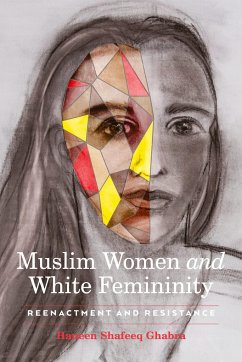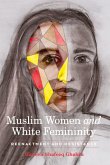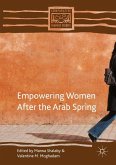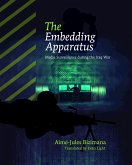Winner of the 2019 Outstanding Book of the Year Award for the International and Intercultural Communication Division (IICD) of the National Communication Association (NCA).
Muslim Women and White Femininity: Reenactment and Resistance is a much-needed book in a time when Muslim women are speaking out but also embodying White femininity. This book focuses on how Whiteness travels through Muslim women's bodies, who in turn reenact or resist White womanhood, by examining three relevant archetypes: the Oppressed, the Advocate, and the Humanitarian Leader. The author aims to demonstrate the necessity of archetypal criticism as a method that can teach the reader or student how to deconstruct dominant discourses in the media. This book aims to address intercultural, gender, intersectional and critical communication courses but is also suited for those in the general public who wish to understand the deceptive nature of the media. Thus, at a time where Muslim women are being used as media objects by Western media, this book is crucial in analyzing how readers can begin to uncover dominant ideologies that are carried through and by Muslim women.
Muslim Women and White Femininity: Reenactment and Resistance is a much-needed book in a time when Muslim women are speaking out but also embodying White femininity. This book focuses on how Whiteness travels through Muslim women's bodies, who in turn reenact or resist White womanhood, by examining three relevant archetypes: the Oppressed, the Advocate, and the Humanitarian Leader. The author aims to demonstrate the necessity of archetypal criticism as a method that can teach the reader or student how to deconstruct dominant discourses in the media. This book aims to address intercultural, gender, intersectional and critical communication courses but is also suited for those in the general public who wish to understand the deceptive nature of the media. Thus, at a time where Muslim women are being used as media objects by Western media, this book is crucial in analyzing how readers can begin to uncover dominant ideologies that are carried through and by Muslim women.
"This is an insightful, eclectic look at the various ways in which Muslim Women have dealt with the hegemonic power of White femininity. Professor Ghabra uses a series of case studies to illustrate how Muslim women can, at times, deploy their subject positionalities to resistant, diverse forms of patriarchy and domestication." -Marouf A. Hasian Jr., Professor of Communication Studies, University of Utah








